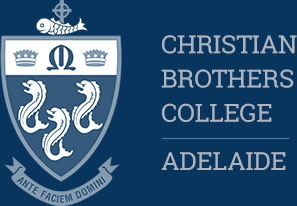
Professional Background
Download Ian Lillico’s full CV
Dr Ian Lillico (father of three sons) is the former Principal of City Beach High School in WA (recently retired) and international consultant in gender, boys’ education and middle schooling. He has done action research in gender throughout Australia and New Zealand from 1992 and in the Northern Hemisphere during his Churchill Fellowship in 2000. He has been with the Education Department of WA for 31 years and has held the positions of Teacher, Head of Department, Deputy Principal and Principal.
Ian is the founder and CEO of the Boys Forward Institute. He has a PhD (Education), is a National Fellow of The Australian Council of Educational Leaders (ACEL) and was the ACEL 2006 National Travelling Scholar. He now provides professional development for teachers, parents, students and a host of other organizations throughout Australia and internationally.
Family
Ian and Alison Lillico have been married for 39 years and have three sons – Guy (38), Sean (34) and Stewart (30). They live in Perth, Western Australia and enjoy a rich and rewarding family life.
Ian is the former Principal of City Beach High School and is now an international consultant in gender and education. Alison looks after the boys’ education consultancy from home. Sean is a music teacher as well as a producer for local WA bands, Stewart is a teacher and Guy is a web designer/developer. Guy and Stewart are also musicians.
Ian has researched boys’ education since 1991 and has gleaned a great deal of insight into the issues facing boys today from his three sons and the many boys (and girls) who treated the Lillico family house as their second home.
Making a Difference
Hundreds of schools around the world are making a difference to the way that boys are performing following extensive work with Ian and his recommendations over the past nine years. Many have changed whole school policies and practices in line with his suggestions and staff and parents are already seeing changes in the way that boys are engaging in learning.
His practical and hands on approach to issues such as bullying, curriculum delivery and behaviour management is being widely acclaimed by large numbers of staff as the best professional development they have ever attended.
The on-going needs of girls are also dealt with in the presentations and gender specific learning styles are analysed to improve girls’ performance at school as well.
Parents, teachers and the general public will find the issues relevant and be able to apply many of the findings immediately to their own children, students and boys in general.
Presentations
Teacher and school presentations deal with contemporary practices and theories in dealing with male students from birth to adulthood. Ian will share strategies that are working in different parts of the world and give teachers and administrators strategies for relating to boys and ways of supporting them in school.
He will deal with issues such as bullying, discipline, relationships, technology and the changing world of work. He will dispel some of the boy myths and provide teachers with many practical strategies to use in their classrooms to improve boys’ behaviour, academic achievement and participation in school.
School presentations explore the issues surrounding boys’ learning in Australia and outline detailed plans for school improvement based on the 52 recommendations he has made in his Churchill Fellowship report which has been accepted by the National Senate Inquiry into boys’ underachievement in Australia.
Presentations cover boys of all ages and discuss their changing needs in society and the impact this is having on their schooling. There are a number of modes of professional development delivery ranging from lectures to large audiences to workshops with smaller groups of staff, parents or boys. All sessions are informative, entertaining and interesting.
Many suggestions are put forward and include reviewing pastoral care and discipline systems, school planning, physical structure of schools and strategies to engage boys more fully in schooling.



